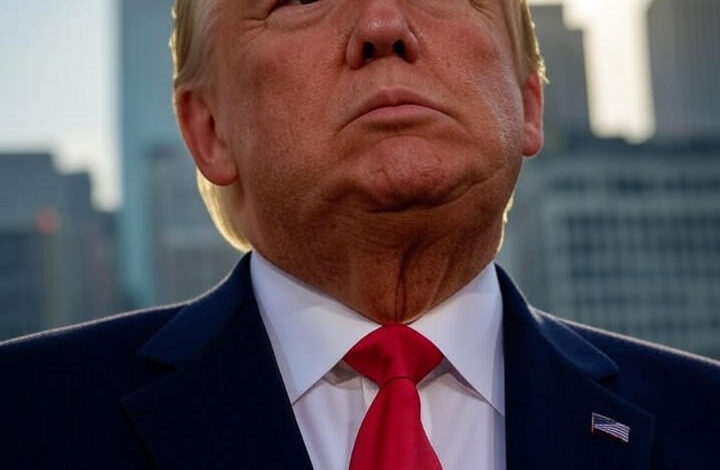Trump’s 2025 Tariffs Hit Africa Hard, Shift Trade to China

UPDATE: President Donald Trump has just announced sweeping tariffs set to reshape global trade dynamics starting August 7, 2025, putting immense pressure on African countries. The White House’s declaration of a national emergency has resulted in tariffs of up to 41% on goods from 69 countries, including several in Africa, threatening the continent’s fragile economies dependent on exports.
The immediate impact is staggering. South Africa, facing a 30% tariff hike, could see job losses exceeding 100,000 in key sectors like agriculture and automotive, according to estimates from South Africa’s central bank governor. The situation is dire for U.S.-Africa relations and jeopardizes the African Growth and Opportunity Act (AGOA), which allows eligible African goods to access U.S. markets duty-free.
In response to these tariffs, African governments are urgently pivoting towards diversification. Countries like Nigeria and Ghana, both facing 15% tariffs, are ramping up intra-continental trade under the African Continental Free Trade Area (AfCFTA). Analysts emphasize the urgency, highlighting Africa’s vast resources—holding 60% of global arable land and 33% of minerals—as potential leverage for new partnerships, especially with China and the EU.
The broader economic ramifications are severe. The Tax Foundation reports that Trump’s tariffs could impose an annual tax increase of $1,300 per U.S. household, while African nations could see export revenues slashed by billions. An IMF revision anticipates a 0.5% decline in global growth for 2025, leading to an estimated $800 billion loss over two years.
Corporate giants are already feeling the financial strain. Reports indicate that U.S. companies like Caterpillar and Yum Brands may face a profit dip of $15 billion in 2025 due to these tariffs. In South Africa, automotive exports to the U.S. have already dropped significantly, triggering layoffs and production halts. Market reactions have been swift, with Wall Street tumbling in response to weak U.S. jobs data, raising fears of a recession driven by trade conflicts.
African insiders warn that without immediate adaptation, small exporters are at risk of collapse, exacerbating inequality. Geopolitically, these tariffs threaten to alienate African allies, pushing them closer to rivals like China. Experts are calling for a “future-proofing” strategy through the AfCFTA to counter such risks.
As African leaders lobby for tariff exemptions, they are also working to bolster domestic resilience amid these challenges. The continent’s scramble reflects a significant shift in global trade dynamics, where U.S. protectionism may inadvertently accelerate Africa’s economic integration and realignment towards new global partnerships.
With tariffs taking effect soon, the urgency for African nations to adapt is critical. The unfolding situation will be closely watched as it develops, with the potential for long-lasting impacts on both sides of the Atlantic.






